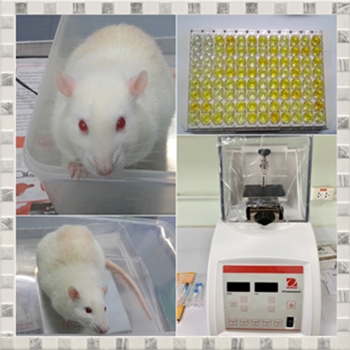
Room: B513A
Staff: Dr.Sutharinee Likitnukul
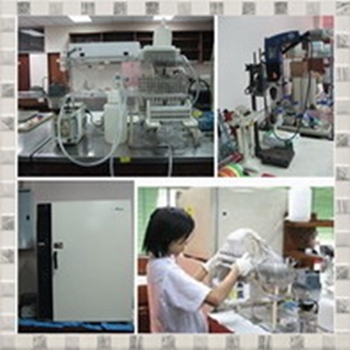
Receptor pharmacology, signal transduction, medicinal plant, endocrine/immunopharmacology
Current research of this laboratory focus on the functions of estrogen receptors on immune cells and the roles of estrogen in autoimmune diseases, the activities are also compared with phytoestrogens, a potential alternative to estrogens. This work includes the search for the mechanisms of signaling pathways and how these signaling pathways relate to human diseases.
Room: B513
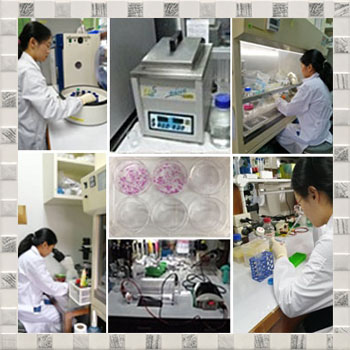
Molecular pharmacology and translational cancer research
Our lab primarily focuses on novel molecular targets and biomarkers for the treatment of cancer. Our current work includes characterization of the mechanisms underlying the anticancer effect of the bioactive compounds from Thai indigenous plants, with the emphasis on cancer stem cell pathway. We also aim to understand the role of biomarkers, especially metabolic biomarkers, on the prognosis and response to treatment of lung cancer patients. Moreover, the second focus of our lab develop from the prior work on the autophagy pathway and its role in neuroprotection on oxidative stress and neurotoxic model. We use in vitro model and translational research in collaboration with clinicians at Ramathibodi hospital.
เภสัชวิทยาโมเลกุล และมะเร็งวิทยาประยุกต์
งานวิจัยหลักของเรามุ่งเน้นศึกษากลไกใหม่เพื่อใช้รักษาโรคมะเร็ง โดยศึกษาฤทธิ์ต้านมะเร็งจากสารสกัดและอนุพันธ์ในเซลล์มะเร็งเพาะเลี้ยง โดยมุ่งเป้าที่กลไกจำเพาะต่อเซลล์มะเร็งต้นกำเนิด ที่เป็นสาเหตุของการดื้อยาและกลับมาเป็นซ้ำของมะเร็ง รวมถึงหาตัวบ่งชี้ชีวภาพเพื่อพยากรณ์การตอบสนองต่อการรักษาและการดื้อยา โดยเฉพาะตัวบ่งชี้ทางเมตาบอลิสมที่จำเพาะกับเซลล์มะเร็ง นอกจากนั้นเรายังมีงานวิจัยทีเกี่ยวข้องกับฤทธิ์ปกป้องเซลล์ของจากกระบวนการกินตัวเอง(autophagy) ต่อสิ่งกระตุ้นที่เป็นพิษต่างๆ เช่นสารพิษและสารอนุมูลอิสระ เพื่อวางแนวทางในการรักษาป้องกันต่อไป
Room: B509
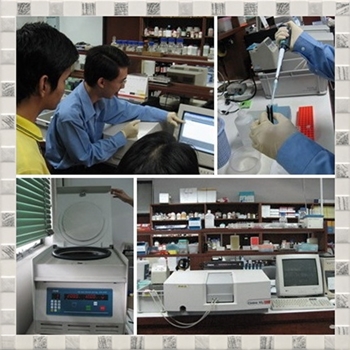
Laboratory for iron and free radical research
Iron is an important element utilizing for life-sustaining process. Conversely, dysregulation of iron induces free radical reaction and lipid peroxidation that involves in the process of cell death or “ferroptosis”. Our laboratory develops the advance techniques including fluorescence, high performance liquid chromatography (HPLC) and electron paramagnetic resonance (EPR) spectroscopy to study free radical reaction, identify lipid biomarkers and characterize iron induced pathogenesis of oxidative related diseases mainly iron overload and thalassemia. Drug discovery of iron chelators and free radical inhibitors is also a line of our research.
ห้องปฏิบัติการวิจัยธาตุเหล็กและอนุมูลอิสระ
เหล็กเป็นธาตุที่มีความสำคัญต่อกระบวนการในสิ่งมีชีวิต แต่หากกลไกการควบคุมเหล็กในร่างกายบกพร่องเหล็กจะเหนี่ยวนำให้เกิดปฏิกิริยาอนุมูลอิสระและปฏิกิริยาออกซิเดชั่นของไขมัน ซึ่งเกี่ยวข้องกับกระบวนการตายของเซลล์หรือกระบวนการเฟอรอฟโทซิส ห้องปฏิบัติการของเราได้พัฒนาเทคนิคต่างๆได้แก่ fluorescence, high performance liquid chromatography (HPLC) and electron paramagnetic resonance (EPR) spectroscopy เพื่อศึกษาปฏิกิริยาอนุมูลอิสระ ศึกษาตัวชี้วัดทางชีวภาพของไขมัน และศึกษาพยาธิกำเนิดของโรคต่างๆที่เกี่ยวข้องกับเหล็ก โดยเฉพาะอย่างยิ่งภาวะเหล็กเกินในผู้ป่วยธาลัสซีเมีย นอกจากนี้ยังค้นคว้าศึกษาพัฒนายาขับเหล็กและสารที่สามารถเป็นยายับยั้งอนุมูลอิสระอีกด้วย
Room: B507
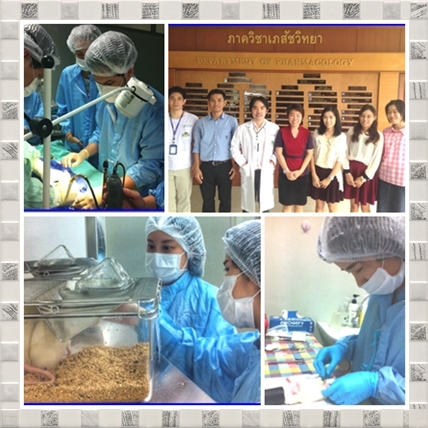
Laboratory of animal models in pain research and musculoskeletal disorders
Our research focuses on using animal models as research tools to provide important knowledge of pathological conditions that can eventually lead to the development of more effective clinical treatment of musculoskeletal disorders in humans. The animal models are essential to bridge the translational gap between in vitro studies and clinical research. Our research interests are focused on identifying alternative approaches for treating pain-associated with orthopaedic conditions such as osteoarthritis and cartilage injuries. We currently employed tissue engineering approaches such as mesenchymal stem cell therapies and synthetic scaffold implantation to repair damaged cartilage and bone in a rat model of cartilage and bone defect. In addition, mechanisms underlying musculoskeletal pain are also of interest.
Room: Pr503
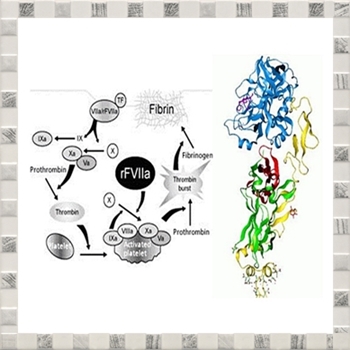
Thrombosis and hemostasis research
My laboratory is primarily focusing on thrombosis and hemostasis research. With a strong collaboration with Faculty of Medicine Ramathibodi Hospital, I am doing a pilot study about characterization of the biochemistry and coagulant activity of recombinant human factor VIIa produced from a novel hepatocyte-like cell derived from mesenchymal stem cells.
Room: Pr505
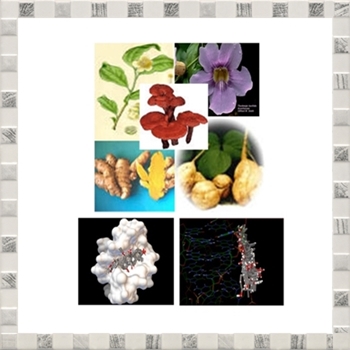
Laboratory for neuropharmacology & pharmacology of medicinal plants
Our research interests are the neuroprotective and anticancer effects of medicinal plants. Current research is focus on the studying the underlying mechanisms of the neuroprotective and anticancer activities of the crude extracts and pure compounds extracted from the medicinal plants. In addition, the molecular modeling and computer aided drug design are carried out to study the antiaging and anticancer compounds isolated from natural products.
Room: Pr511
Staff: Dr. Somchai Yanarojana
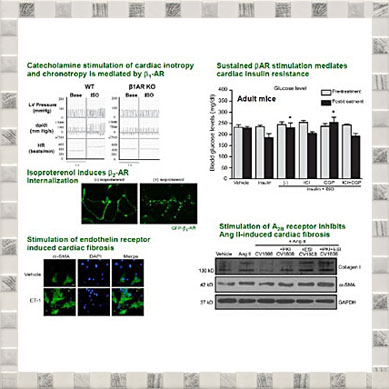
Laboratory for Cardiovascular pharmacology
Cardiovascular pharmacology is the study of the mechanisms of drug action where the drug could be broadly defined as natural/synthetic compounds and endogenous molecules that have physiological effects on the cardiovascular system. Our laboratory focuses on the research study of the role for G protein-coupled receptor (GPCR) functions and signal transduction in the heart. For instance, we investigate the subtype specificity, genetic variation, and signaling pathway of β-adrenergic receptor affecting heart failure, cardiac fibrosis, and cardiac insulin resistance. We investigate the signal transduction of glucagon-like peptide 1 receptor for antioxidant and antiapoptotic effects. We also study the signaling pathway of adenosine receptor for inhibition of angiotensin II- and endothelin-1-induced cardiac fibrosis. We believe that investigation of these GPCR functions and identify the molecular mechanism of their signaling will advances our understanding in physiology and pathophysiology in the heart. These data will be served as scientific and pre-clinical data for further application to use GPCR agonists/antagonists as the therapeutic agents for treatment of heart diseases.
เภส้ชวิทยาของยารักษาโรคหัวใจและหลอดเลือด
เภสัชวิทยาของยารักษาโรคหัวใจและหลอดเลือดเป็นการศึกษากลไกของการออกฤทธิ์ของยาซึ่งอาจเป็นสารที่ได้จากธรรมชาติหรือสารสังเคราะห์ รวมถึงสารที่พบได้ในร่างกายที่มีผลทางสรีรวิทยาต่อระบบหัวใจและหลอดเลือด ห้องปฏิบัติการวิจัยของเรามุ่งเน้นไปที่การศึกษาวิจัยเกี่ยวกับบทบาทหน้าที่และกลไกการส่งสัญญาณของตัวรับ G protein-coupled receptor (GPCR) ชนิดต่างๆ ในหัวใจ ยกตัวอย่างเช่น การศึกษาความจำเพาะของชนิด ความแปรผันทางพันธุกรรมและการส่งสัญญาณของβ-adrenergic receptor ที่เกี่ยวข้องกับโรคหัวใจล้มเหลว ภาวะพังผืดหัวใจและภาวะดื้ออินซูลินในหัวใจ นอกจากนี้เรายังศึกษาถึงการส่งสัญญาณของglucagon-like peptide 1 receptor ต่อฤทธิ์ต้านอนุมูลอิสระและฤทธิ์ต้านการตายแบบapoptosis ในหัวใจ รวมถึงการศึกษากลไกการส่งสัญญาณของ adenosine receptor ในการยับยั้งภาวะพังผืดหัวใจที่ถูกกระตุ้นจาก angiotensin II และ endothelin-1การศึกษาเภสัชวิทยาของยารักษาโรคหัวใจจะช่วยเพิ่มความเข้าใจในสรีรวิทยาและพยาธิสรีรวิทยาของหัวใจ ซึ่งข้อมูลเหล่านี้จะเป็นข้อมูลทางวิทยาศาสตร์และข้อมูลก่อนการวิจัยทางคลินิกสำหรับการประยุกต์ใช้ต่อไปของสารที่ออกฤทธิ์กระตุ้นหรือยับยั้งตัวรับชนิดGPCR ในการใช้รักษาโรคหัวใจ
Room: B511
Staff: Prof. Supachoke Mangmool
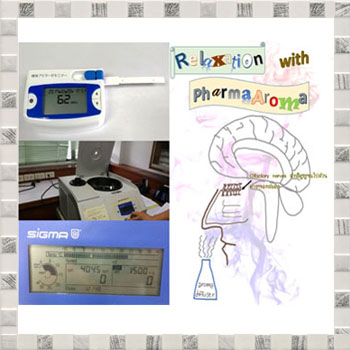
Psychopharmacology lab
Our lab is interested in the effects of aromatherapy in insomnia and various stress models including dental anxiety and academic stress. We assess both subjective and objective responses to aromatherapy to assess its effectiveness. Subjective responses are measured using questionnaires and psychometric tests. Objective responses are measured from body response such as blood pressure, heart rate, salivary amylase and cortisol. We analyze the components of the essential oils used for aromatherapy with GC-MS and HPLC methods. The active components responsible for the aromatherapy’s effects are identified through various methods and assessed for specific effects such as antioxidant, anti-inflammatory, and anti-cancer effects. We are also interested in determining the factors affecting the baseline response or reactivity to stress in each person.
จิตเภสัชวิทยา
งานวิจัยของเราเกี่ยวกับการศึกษาฤทธิ์ทางการแพทย์ของสุคนธบำบัด (aromatherapy) ในหลายๆ ภาวะ เช่น นอนไม่หลับ ภาวะเครียดในสถานการณ์ต่างๆ เช่น การทำฟัน การเรียน โดยมีการประเมินผลของการใช้สุคนธบำบัดทั้งจากแบบสอบถาม และการวัดการตอบสนองของร่างกาย รวมถึงการหลั่งสารที่แสดงออกถึงความเครียด เช่น amylase และ cortisol เราใช้ GC-MS และ HPLC ในการวิเคราะห์ส่วนประกอบของน้ำมันหอมระเหยที่นำมาใช้ และในการหาสารที่เป็นตัวออกฤทธิ์ โดยมีการทดสอบฤทธิ์ทางการแพทย์ต่างๆ เช่นฤทธิ์ต้านอนุมูลอิสระ ต้านอักเสบ และต้านมะเร็ง นอกจากนี้เรายังสนใจค้นหาปัจจัยที่มีผลต่อการตอบสนองต่อความเครียดที่แตกต่างกันไปในแต่ละบุคคลด้วย
Room: B509/B513A
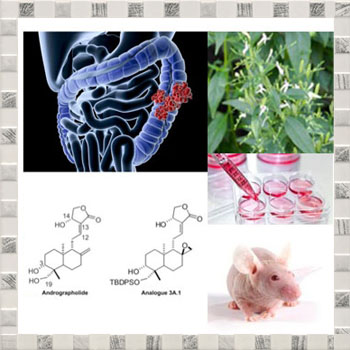
Our lab focuses on the discovery of novel anticancer agents derived from medicinal plants and modified analogs. We also focus on the identification of drug targets that can effectively treat gastrointestinal (GI) cancers, the third most deadly human malignancies. Moreover, we also establish tumor xenograft models for testing anticancer drugs and understanding the treatment responses.
กลุ่มวิจัยมีความสนใจในการค้นหาสารต้านมะเร็งชนิดใหม่ที่ได้จากพืชสมุนไพรและสารอะนาล็อกหรืออนุพันธ์ที่ได้รับการดัดแปลงโครงสร้าง นอกจากนี้ยังได้ค้นหาเป้าหมายของยาที่จะสามารถนำไปใช้รักษามะเร็งทางเดินอาหารและลำไส้ ซึ่งเป็นชนิดมะเร็งที่เป็นสาเหตุการเสียชีวิตเป็นลำดับสามในผู้ป่วย ทางกลุ่มวิจัยยังได้สร้างโมเดลโรคมะเร็งในสัตว์ทดลองเพื่อใช้ในการทดสอบฤทธิ์ยาต้านมะเร็งและทำความเข้าใจการตอบสนองต่อการรักษา
Room: Pr 515
Staff: Dr. Somrudee Reabroi
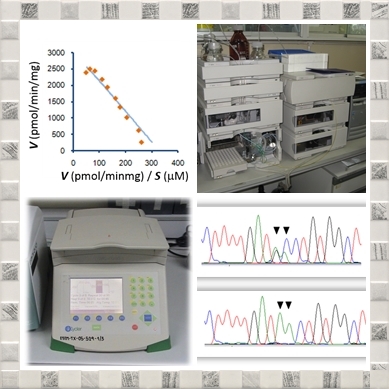
Drug/xenobiotic metabolism and pharmacogenetics
The current research is now focusing on drug and xenobiotic metabolism both in vitro and in vivo (human) and developing in vitro-in vivo extrapolation approach. The study includes characterization the impact of drug-drug and drug-herb interactions on drug safety and efficacy. The research also focuses on the studying genetic polymorphisms of drug-metabolizing enzymes and other genes that influence drug response and toxicity.
กระบวนการเมแทบอลิซึมของยา/สารต่างๆ และเภสัชพันธุศาสตร์
งานวิจัยทางด้านกระบวนการเมแทบอลิซึมของยาและสารต่างๆ โดยทำการทดลองในหลอดทดลองและในมนุษย์ รวมทั้งการพัฒนาใช้ข้อมูลในหลอดทดลองมาคาดการณ์และพยากรณ์ข้อมูลในมนุษย์ (in vitro - in vivo extrapolation) ทำการศึกษาอันตรกิริยาของยาหรือสมุนไพรต่อการเมแทบอลิซึมของยา งานวิจัยที่ศึกษาความสัมพันธ์ของความผิดปกติทางพันธุกรรมของเอนไซม์ที่เกี่ยวข้องในกระบวนการเมแทบอลิซึมต่อผลการตอบสนองและการเกิดพิษของยา
Room: Pr521
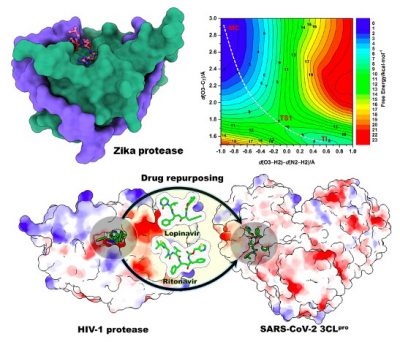
Our laboratory mainly focuses on drug design and discovery using combinatorial computational chemistry techniques to investigate and predict binding interactions of drug and/or promising lead compound toward drug targets. Of particular interest are proteins associated with human diseases and their specificity, dynamics behavior, catalysis, and the effect of mutations on their dynamics and stability. This information can shed light on basic principle of drug action, drug susceptibility and drug resistance mechanism at the atomic level, which are valuable data for further screen, design, and development of more efficient and specific compounds. The main computational approaches used are molecular docking, molecular dynamics (MD) simulation and combined quantum mechanics/molecular mechanics (QM/MM) modeling. The current primary area of interest is the use of biomolecular simulation methods to aid the search for novel neuroprotective natural compounds against Alzheimer’s disease and antiviral agents toward SARS-CoV-2, Zika and dengue viruses prior to in vitro–in vivo testing.
Room: Pr513
Staff: Dr. Bodee Nutho